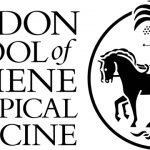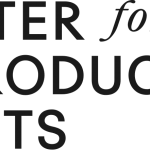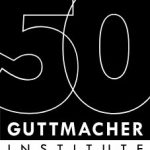The co-facilitators of the 2016 United Nations General Assembly High-Level Meeting on Ending AIDS, Patricia Mwaba Kasese-Bota, Permanent Representative of Zambia to the United Nations, and Jürg Lauber, Permanent Representative of Switzerland to the United Nations, have released the zero draft of the 2016 Political Declaration: on the Fast-Track to end AIDS in the age of sustainable development.
The zero draft reflects on the achievements made so far in the response to AIDS. It also sets out a clear agenda to Fast-Track the response by 2020 and put the world on track to end the AIDS epidemic as a public health threat by 2030.
The zero draft was presented to United Nations Member States on 18 April. The co-facilitators will begin open, transparent and inclusive informal consultations on the draft declaration on 25 April. Member States will negotiate and finalize the declaration over the next few weeks, which will be then be presented for adoption at the High-Level Meeting on Ending AIDS on 8 June. The co-facilitators will also hold an informal meeting with civil society, the private sector and other relevant stakeholders on 26 April, which will be webcast live at http://webtv.un.org/live/.
The United Nations General Assembly High-Level Meeting on Ending AIDS will take place in New York, United States of America, from 8 to 10 June. It will bring together high-level representatives of United Nations Member States, people living with HIV, civil society, the private sector and other partners to focus the world’s attention on the importance of a Fast-Track approach to the AIDS response over the next five years. The Political Declaration adopted at the meeting will guide and monitor the AIDS response towards ending the AIDS epidemic by 2030.
- The Zero Draft includes several key points that address gender and sexual and reproductive health. These include point #28, which explicitly notes “that progress towards gender equality and women’s empowerment has been unacceptably slow…” In addition, point #59 aligns with SDG #5 “Gender Equality” – “Investing in transformative AIDS responses will contribute to Gender Equality and Empower Women and Girls.” Importantly, this point commits to “end all forms of violence against women and girls…”
- The Zero Draft in point #29 explicitly notes “that many national HIV-prevention strategies provide insufficient access to services for key populations that epidemiological evidence shows are at higher risk of HIV.” As was the case in 2011, it explicitly states that men who have sex with men, people who inject drugs, and sex workers are key populations, along with transgender people, prisoners, and migrants. The draft furthermore makes clear in evidence-based terms the extreme risk faced by these populations, including that men who have sex with men are 24 times more likely than adults in the general population to acquire HIV, people who inject drugs are 24 times more likely, sex workers are 10 times more likely, and transgender people are 49 times more likely.
- The Zero Draft in point #30 explicitly notes “the lack of global progress made in reducing transmission of HIV among people who inject drugs” and moreover identifies the “insufficient coverage of highly effective harm reduction programmes, the marginalization and criminalization of people who inject drugs which hamper access to HIV services,” and notes “with concern that gender-based stigma and discrimination often act as additional barrier for women who inject drugs to access HIV services.”
- The Zero Draft in point #36 explicitly notes “the increasing number of new HIV infections in the Middle East and North Africa, where new infections are concentrated among sex workers, men who have sex with men and people who inject drugs,” that in Eastern Europe and Central Asia “new infections continue to increase, largely among people who inject drugs,” “resurgent epidemics” in cities in North America and Western Europe “where men who have sex with men, transgender people, sex workers and their clients, and people who inject drugs are at particularly high risk,” and “that the epidemic is concentrated among key populations in Asia and the Pacific as well as in Latin America and the Caribbean.”
- The Zero Draft aligns with SDG #10 “Reduced Inequalities” in point #60 – “Ensuring the rights of all people to access high-quality HIV services and commodities will narrow the inequalities gap within and among countries.” This point explicitly states the need to “ensure access to tailored HIV combination prevention services to key populations.” Furthermore, it boldly commits to “saturate areas with high HIV incidence” with “a combination of tailored prevention interventions,” including provision of condoms, harm reduction, and PrEP “with particular focus on key populations and young people.” Moreover, it explicitly states that key populations are an appropriate focus of “evidence-based prevention measures.”
- The Zero Draft aligns with SDG #16 “Peace and Justice” in point #61 – “Removing punitive laws, policies and practices that block access to HIV services and ending HIV-related stigma and discrimination will promote just, peaceful and inclusive societies.” This point boldly commits “to remove punitive laws, policies and practices…related to overly broad criminalization of HIV transmission, same-sex sexual relations, sex work and drug use…”
Feedback and comments on the zero draft can be made by email to the International Council of AIDS Service Organizations at HLM2016@icaso.org, by no later than Friday, 22 April.
Publication file: ![]() hlm_zero_draft_en.pdf
hlm_zero_draft_en.pdf





